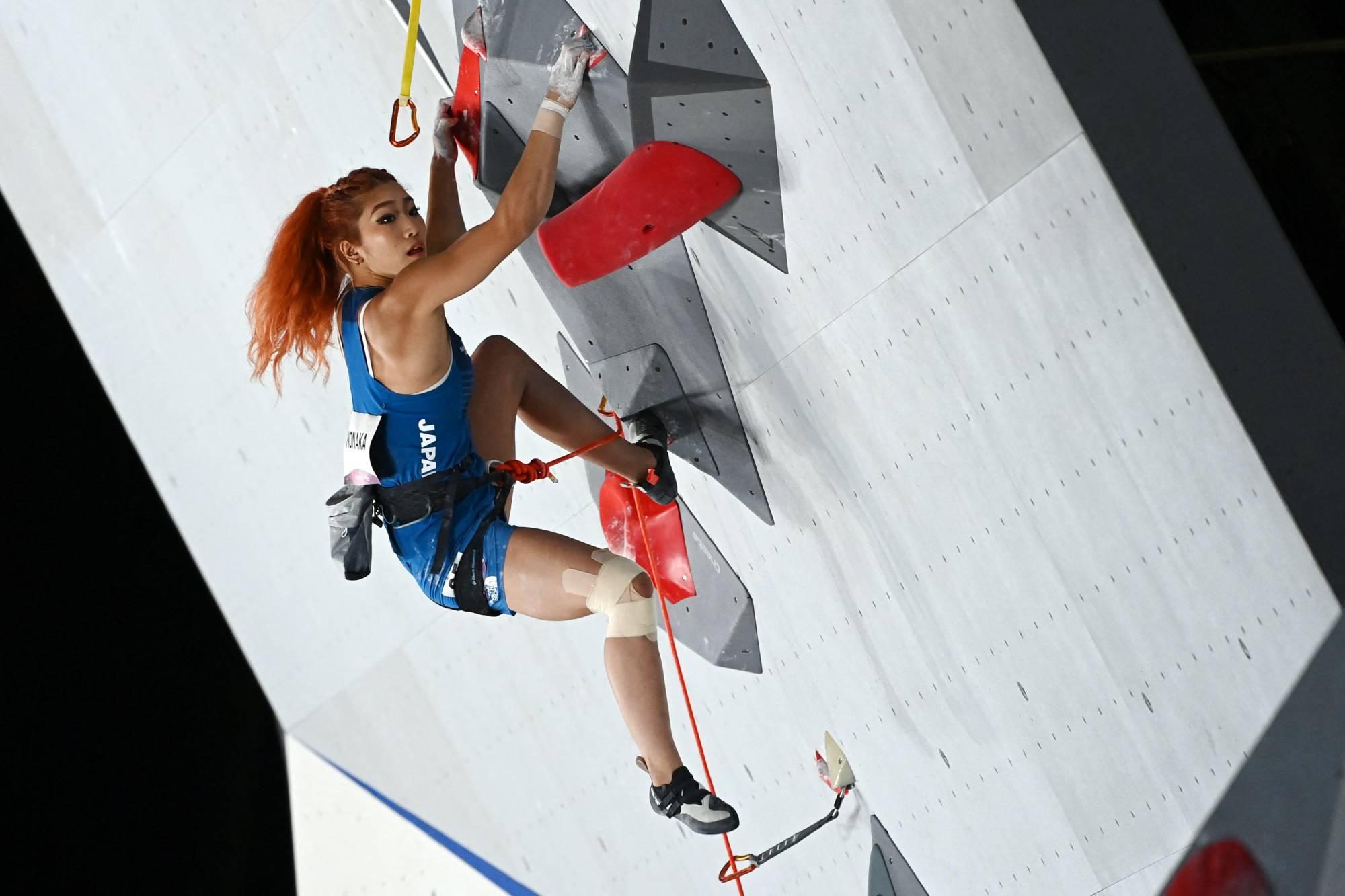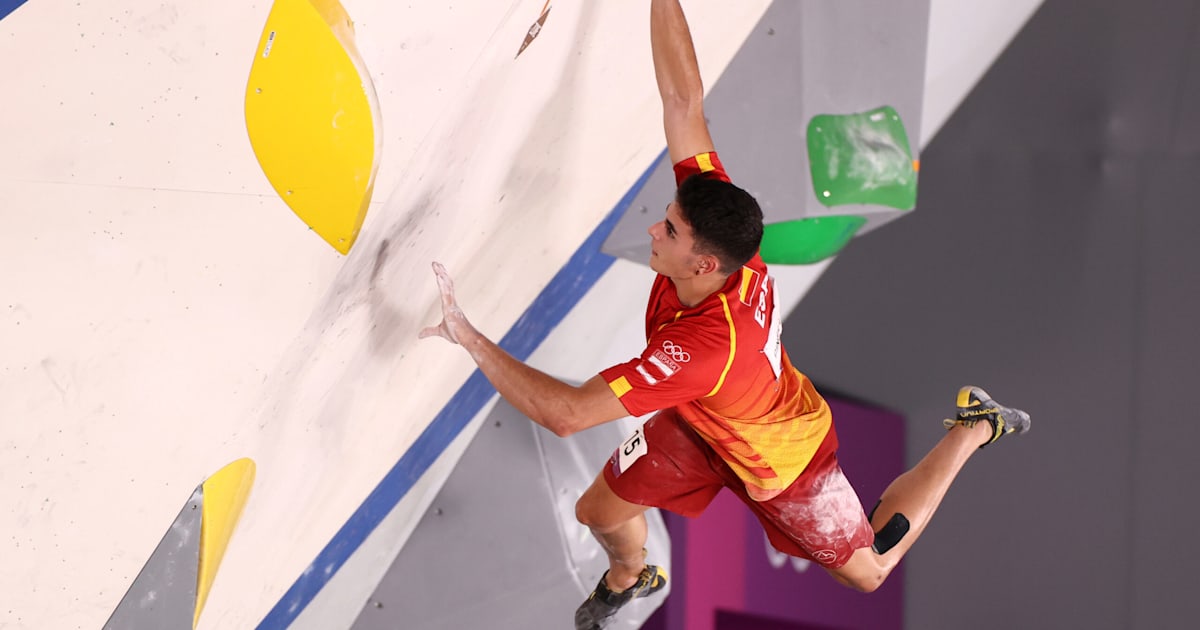The Evolution of Sport Climbing in the Olympics

The inclusion of sport climbing in the 2020 Tokyo Olympics marked a significant milestone for the sport, showcasing its evolution from a niche activity to a globally recognized athletic discipline. While the sport’s presence in the Olympics may seem recent, its journey to the international stage is rooted in a rich history and a dynamic evolution.
The Historical Context of Sport Climbing’s Inclusion in the 2020 Olympics
Sport climbing’s journey to the Olympics is a testament to its growing popularity and the efforts of dedicated individuals and organizations. The International Federation of Sport Climbing (IFSC), established in 1991, played a crucial role in promoting the sport’s development and advocating for its inclusion in the Olympics. The IFSC standardized rules, organized international competitions, and worked tirelessly to raise the sport’s profile on the global stage.
The inclusion of sport climbing in the 2020 Olympics was a culmination of years of hard work and advocacy. The sport’s dynamic nature, its thrilling spectacle, and its growing popularity around the world convinced the International Olympic Committee (IOC) to include it in the Games.
The Differences Between Traditional Climbing and Sport Climbing
Sport climbing is a specialized form of climbing that involves ascending pre-set routes on artificial walls or natural rock faces equipped with permanent anchors and bolts. It differs from traditional climbing, which emphasizes self-reliance and exploration.
- Route Setting: In sport climbing, routes are pre-set by route setters, who carefully select holds and design challenging sequences. In traditional climbing, climbers choose their own routes, relying on their knowledge of the terrain and their ability to place protection gear.
- Protection: Sport climbing utilizes permanent bolts and anchors, offering a secure and predictable system for protection. Traditional climbing involves placing temporary protection gear, such as cams and nuts, along the route, requiring climbers to make informed decisions about protection placement.
- Equipment: Sport climbing primarily uses ropes, harnesses, and quickdraws. Traditional climbing often involves additional gear, such as a rack of protection devices, belay devices, and a helmet.
- Style: Sport climbing emphasizes technical skills, strength, and precision, while traditional climbing often involves a mix of technical skills, endurance, and strategic route-finding.
Key Factors Contributing to Sport Climbing’s Growing Popularity
Sport climbing’s popularity has surged in recent years, fueled by several key factors.
- Accessibility: Sport climbing is accessible to a wide range of individuals, regardless of age, fitness level, or experience. Indoor climbing gyms have become increasingly prevalent, offering a safe and controlled environment for beginners to learn and experienced climbers to train.
- Health and Fitness Benefits: Sport climbing provides a full-body workout, enhancing strength, flexibility, endurance, and cardiovascular health. It also offers mental challenges, promoting focus, problem-solving skills, and confidence.
- Community and Social Aspect: Sport climbing fosters a strong sense of community, with climbers sharing a passion for the sport and supporting each other’s progress. Climbing gyms and outdoor climbing areas often become hubs for social interaction and camaraderie.
- Thrilling Spectacle: Sport climbing competitions are visually captivating, showcasing athletes’ incredible strength, agility, and technical prowess. The dynamic nature of the sport, with climbers pushing their limits and overcoming challenges, makes it an exciting and engaging spectacle for spectators.
The Sport Climbing Events in Paris 2024: Sport Climbing Olympics 2024
The 2024 Paris Olympics will feature sport climbing as a medal event for the second time, with athletes competing in three disciplines: lead climbing, bouldering, and speed climbing. This format aims to showcase the diverse skill sets required for success in the sport, ensuring a thrilling and unpredictable competition.
Lead Climbing
Lead climbing involves ascending a challenging route as high as possible within a set time limit. The climber uses ropes and harnesses for safety, but the difficulty lies in navigating the complex sequence of holds, often requiring technical expertise, strength, and endurance.
The scoring system in lead climbing is based on the height reached within the time limit. The climber who reaches the highest point on the wall within the time limit receives the highest score. If two or more climbers reach the same height, the climber who completed the climb in the shortest time receives the higher score.
Here are some of the key athletes to watch in the lead climbing competition:
- Janja Garnbret (Slovenia): Garnbret is considered one of the greatest sport climbers of all time, having won numerous World Championships and Olympic medals. Her technical prowess and consistent performance make her a strong contender for gold in Paris.
- Adam Ondra (Czech Republic): Ondra is known for his exceptional climbing ability and has achieved many first ascents of difficult routes. His experience and strength make him a formidable competitor in the lead climbing event.
- Alberto Ginés López (Spain): Ginés López is the reigning Olympic champion in combined climbing, having won the inaugural event in Tokyo. His versatility and adaptability make him a threat in all three disciplines, including lead climbing.
Bouldering
Bouldering involves climbing short, challenging routes without the use of ropes. The focus is on technical problem-solving and finding creative solutions to navigate difficult moves. Climbers attempt to complete a series of pre-set boulder problems within a set time limit.
The scoring system in bouldering is based on the number of successful ascents within the allotted time. Each boulder problem is assigned a specific difficulty level, with harder problems awarding more points. The climber with the highest total score after attempting all problems wins.
Here are some of the key athletes to watch in the bouldering competition:
- Janja Garnbret (Slovenia): Garnbret is also a dominant force in bouldering, having won multiple World Championships and Olympic medals. Her ability to solve complex problems quickly and efficiently makes her a favorite in Paris.
- Tomoa Narasaki (Japan): Narasaki is a renowned bouldering specialist known for his dynamic moves and impressive strength. He has consistently performed well in international competitions and is a strong contender for a medal in Paris.
- Alex Honnold (USA): Honnold is a world-famous climber known for his free solo ascents of big walls. While his focus is on free soloing, his bouldering skills are also exceptional, making him a potential dark horse in the competition.
Speed Climbing
Speed climbing is a test of pure speed and power. Climbers race against each other to reach the top of a standardized 15-meter wall as quickly as possible. The focus is on explosive power and efficient technique.
The scoring system in speed climbing is simple: the climber who completes the climb in the fastest time wins. If two or more climbers complete the climb in the same time, the climber who started the climb first receives the higher score.
Here are some of the key athletes to watch in the speed climbing competition:
- Aleksandr Shikov (Russia): Shikov is the current world record holder in speed climbing, having climbed the 15-meter wall in an astonishing 5.48 seconds. His explosive power and quick reflexes make him a clear favorite in Paris.
- Anouck Jaubert (France): Jaubert is a rising star in speed climbing and has consistently performed well in international competitions. Her speed and technique make her a strong contender for a medal on home soil.
- Brooke Raboutou (USA): Raboutou is a versatile climber who excels in both speed climbing and bouldering. Her speed and agility make her a potential threat in the speed climbing competition.
The Impact of the Olympics on Sport Climbing

The inclusion of sport climbing in the 2020 Tokyo Olympics marked a significant milestone for the sport, propelling it into the global spotlight. This exposure is expected to have a profound impact on the growth and development of sport climbing, both in terms of participation and professionalization.
The Growth and Development of Sport Climbing, Sport climbing olympics 2024
The Olympics provided a platform for sport climbing to reach a vast audience, generating significant interest and exposure. This has translated into a surge in participation, particularly among young people, as the sport’s dynamic nature and accessibility appeal to a wide range of individuals. The increased popularity has also led to a rise in investment in sport climbing facilities, equipment, and coaching, further contributing to the sport’s growth.
Challenges and Opportunities in the Post-Olympic Era
While the Olympics have presented sport climbing with a tremendous opportunity for growth, the sport faces certain challenges in the post-Olympic era. Maintaining the momentum generated by the Games will require sustained effort from stakeholders, including athletes, federations, and sponsors. A key challenge is to ensure that the sport remains accessible and inclusive, catering to a diverse range of participants. Furthermore, developing a sustainable business model for professional sport climbing is crucial to support athletes and ensure the long-term viability of the sport.
Key Differences between the 2020 Tokyo and 2024 Paris Sport Climbing Events
The Paris 2024 Olympics will feature a slightly different format for sport climbing compared to the Tokyo 2020 Games. Here is a table highlighting the key differences:
| Category | Tokyo 2020 | Paris 2024 |
|---|---|---|
| Combined Format | Speed, Boulder, Lead | Speed, Boulder, Lead |
| Speed Discipline | Individual | Individual |
| Boulder and Lead Disciplines | Combined | Separate |
| Qualification | Top 20 in Combined Ranking | Top 8 in each Discipline |
| Final | Top 8 in Combined Ranking | Top 8 in each Discipline |
Sport climbing olympics 2024 – The 2024 Olympics in Paris is gonna be LIT for sport climbing! We’re talking about the next generation of climbers, like the ones you can check out here , who are ready to show the world what they’re made of.
Get ready for some epic moves and intense competition – this is gonna be a real game-changer for the sport!
Sport climbing is finally making its debut in the Olympics in 2024, and it’s gonna be a wild ride! The US team is gonna be fierce, and you can check out their journey to the games here. It’s gonna be a real test of strength, speed, and endurance, and I can’t wait to see who takes home the gold!
